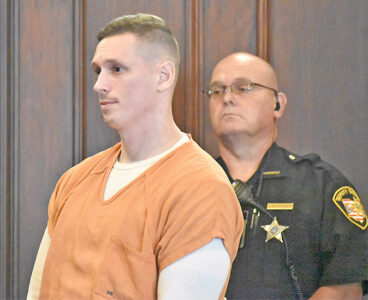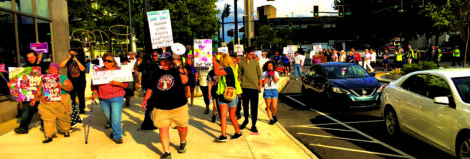All the world is a literary stage for Youngstown State professor
All the world is a literary stage for Youngstown State professor

Timothy Francisco has a background in English and journalism and is a professor at Youngstown State University. He recently was elected as a trustee of the Shakespeare Association of America, the discipline’s premier scholarly / professional organization in the U.S. and Canada.
YOUNGSTOWN — Timothy Francisco confessed his interest in William Shakespeare began after he returned to college as a graduate school student, initially bouncing around as a journalist, researcher and bartender.
“As an undergrad, I was an English major. I was English, writing and journalism, and I worked as a newspaper reporter after graduation, you know? So I was editor of the campus newspaper,” Francisco said. “And then when I graduated college, me and a friend who was the managing editor of the college newspaper, started our own weekly newspaper. We took out loans, and I think we made a go of it for about a year.”
Francisco, now a professor of English and World Languages at Youngstown State University, explained he was initially drawn in by not just Shakespeare, but the time period he lived in itself.
“There was so much going on in this time period, so we’re talking about, this English Renaissance,” Francisco said. “So 1550 to 1620, thereabouts, you had all of these enormous political, religious, social, technological changes, and it felt really expansive and really contemporary and, you know, advances in science and, you know, the whole idea of heliocentric universe, it felt big and expansive.”
Francisco said as of recent years, his work and research have revolved around the “Public Shakespeare,” a movement considering how Shakespeare studies fit into public discourse and aiming to spread it out to wider audiences so they can potentially think more deeply about social and political issues.
It is essentially trying to sort of break down the walls between the study of Shakespeare as a holy kind of academic university-contained enterprise into something a little bit bigger,” Francisco said. “I’m more interested in what other scholars are doing and trying to think about and historicize those trends and in some ways maybe predict where that’s taking us.”
“My most recent publications are really doing that, ‘saying, oh, OK, this is what’s going on with this development in public theater, right, this is what’s going on in terms of the profession and the humanities more broadly.’ What kind of questions need to be asked as we move forward,” Francisco added.
Francisco’s academic journey has taken him all over the United States, getting his bachelor’s and master’s degrees from Western Connecticut State University, a mere 11 minutes from his hometown of Bethel, to the University of Alabama, where he got his PhD.
Francisco said he came to Youngstown State University 20 years ago as a dual hire in the English and journalism programs.
Despite having another offer from a school in Alabama, Francisco said he ultimately chose YSU because it was considered an “access institution” back then — colleges or universities that actively recruit and support underrepresented or disadvantaged students.
“That’s the kind of school I went to. I know what those kinds of institutions can do and how transformative they can be, so I was attracted to that,” Francisco said. “I went to a place very much like YSU, and it changed my life.”
Francisco was recently elected as a trustee of the Shakespeare Association of America, the discipline’s premier scholarly / professional organization in the U.S. and Canada. He admitted it was “very surprising” to get the nod.
“It was surprising to me because The Shakespeare Association of America is an organization that I love and kind of have revered since I was a graduate student,” Francisco said. “I went to my first Shakespeare Association conference with my dissertation director, who’s now my co-writer, back in the 90s.”
“For me, it was surprising and gratifying that, you know, I’m coming from Youngstown State. You know, we’re a regional comprehensive university, but we are also the kind of institution that 90 plus percent of students actually go to. So it’s really important that our voices, our concerns, but also the way that we are negotiating and innovating are represented in the broader conversations,” Fransisco added.
Outside of teaching, Francisco does yard work and travels. He also likes playing pickleball and visits his family in Connecticut when he can.
To suggest a Friday profile, contact Metro Editor Marly Reichert at mreichert@tribtoday.com or Features Editor Ashley Fox at afox@tribtoday.com.




